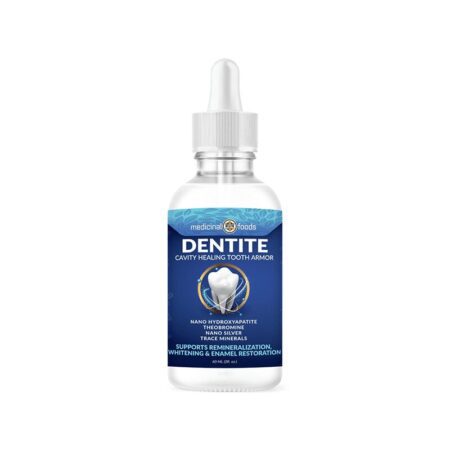What do probiotics do for you and why are they so important?
If you want to be healthy, you need to consume food rich in probiotics or take dietary supplements every day.
They are, therefore, living microorganisms, so-called good bacteria, that are applied in adequate quantities that have beneficial effects on the health.
Both beneficial and harmful bacteria are found in our intestines. Experts agree that the ratio should be approximately 85% good and 15% bad bacteria.
A condition in which this ratio is disturbed is called dysbiosis, and it occurs when we have too many specific types of fungi, yeast or bacteria that have a negative impact on the body.
By consuming these foods and supplements, we help our body get that ratio back to normal.
New research shows us that the positive effects go much further than previously thought.
So they are crucial, not only for better health and a stronger immune system but also for recovery of the digestive tract, mental health and neurological disorders.
The first and most neglected reason why the digestive tract is so important to our health lies in the fact that 80% of our entire immune system is located right in the digestive tract.
In addition to affecting the immune system, the digestive tract is the second largest part of our neurological system.
We call it the enteric nervous system and it is found in our intestines. They have been with us since the moment we were born.
When the baby is in the mother’s birth canal during childbirth, it is exposed to the mother’s bacteria for the first time.
This event starts a whole series of processes within the child’s gastrointestinal tract, which then begins the production of good bacteria.
They help to restore the balance (between the so-called "good and bad" bacteria) in our intestines, because the microflora can become disturbed due to:
Disease, stress, ageing, taking antibiotics or other drugs, exposure to toxins, excessive alcohol consumption, and even antibacterial soaps.
Previous scientific research suggests that they cannot replace the destroyed natural body flora.
However, as temporary colonies they may help the body by performing the same functions as the natural flora, giving the natural flora enough time to recover.
What do probiotics do for you?
One of the most common reasons for a woman to visit a doctor is genital and urinary tract infections.
At the top of the scale are vaginal infections that most women have at least once in their lives.
That is why it is important to make progress in the field of prevention and treatment of these infections, and recently they have become increasingly important in this area.
They are microorganisms that have positive effects on health if found in adequate amounts, either in the digestive or urinary tract.
They are also called "good" bacteria because we distinguish them from "bad" ones that cause disease.
Women who have elevated estrogen levels, such as those taking oral contraceptive pills (especially those with high doses of estrogen), are also more likely to have vaginal fungal infections during pregnancy and estrogen therapy during menopause.
In addition, women with diabetes who do not have good control of blood glucose levels are more exposed to vulvovaginal candidiasis. It is in these groups of women that taking them is often recommended.
The quality varies around the world – products are often not standardized.
Since the regulations for the control and quality of commercially available kinds differ, caution should be exercised when selecting the type and manufacturer of preparations.
According to the recommendations of the World Health Organization, probiotics have a beneficial effect on:
- diarrhoea,
- constipation,
- allergies,
- cancer,
- urinary tract infections and other conditions and diseases such as:
- lactose intolerance,
- colon cancer prevention,
- lowering cholesterol,
- lowering blood pressure,
- improving immune function,
- prevention and treatment of diarrhoea, * reduction of inflammation,
- beneficial effect on irritable bowel syndrome,
- prevention of harmful bacteria growth under stress.
Antibiotics not only kill the pathogenic bacteria for which they are indicated, but also kill the good bacteria in the gut which often leads to diarrhoea, and reduce the chance of getting such diarrhoea.
It is important to note that there are several different strains. The benefits of one may be completely different from the benefits and properties of another.
Certain strains support the immune system, some support digestion, and some even help with weight loss and proper hormone balance.
If you want to take them to improve a certain health condition, it is very important to choose the right one that may help with that particular health condition.
What probiotics do
Probiotics (Greek, bios – life) have been widely mentioned in recent years, although they have been in the service of man since his inception.
Consumers are daily confronted with food products for which one or more strains of these bacteria are responsible, of which Lactobacillus acidophilus, Lactobacillus casei, Lactobacillus Plantarum, Bifidobacterium bifidum, Lactobacillus bulgaricus and Streptococcus thermophilus are better known.
They have been linked to humans since the first moments of a newborn’s life, and the formation of the intestinal microflora is influenced by several factors.
The diet of newborns also affects the development of the microflora and children are with breast milk.
In them, the lower incidence of gastrointestinal infections can be attributed to the dominance of bifidobacteria.
In addition, in young children they can alleviate the allergic reaction to cow’s milk, which manifests itself as atopic eczema.
The use as an aid in the treatment of diseases of the digestive system was preceded by intensive research in the second half of the last century.
These bacteria and their enzymes inhibit the reproduction of pathogenic microorganisms, thus helping to maintain the balance of the intestinal microflora, which is especially important for people on antibiotic therapy.
Then, according to the results of studies, the organism is more susceptible to the development of pathogenic microorganisms, which results in various ailments, including diarrhoea.
It has been shown that the intake of Lactobacillus acidophilus significantly reduces the activity of enzymes of pathogenic bacteria, but this effect is absent with the cessation of therapy.
Since it is easy to determine which patients belong to the risk group, it is relatively simple, by taking adequate amounts, to prevent or at least alleviate side effects.
In addition, they are effective in relieving irritable bowel problems and Heliobacter pylori infections, and their addition to the rehydration solution helps recover from acute diarrhoea.
The beneficial effects on humans are especially evident in individuals who have poor digestion of milk sugar, lactose.
These microorganisms metabolize lactose and have also been shown to stimulate the activity of lactase, an enzyme needed to break down lactose, all of which contributes to better acceptance of fermented dairy products, which enrich our diet with easily usable high-value protein and calcium.
Also, it is important to note that they have a beneficial effect on mineral metabolism, which has a positive effect on bone density.
Previous research, which examined the possibility of using certain cultures of Lactobacilli in the treatment of bacterial and fungal infections of the urogenital tract in women, has given promising results.
This is the result of the action of metabolites of the mentioned bacteria, from which acids, bacteriocins, hydrogen peroxide, biosurfactants are released.
In addition, they can stimulate the activity of macrophages that act against various pathogenic bacteria. This is another proof that these are microorganisms of great potential.
A balanced and varied diet, which includes fruits, vegetables and unprocessed grains as sources of prebiotics and various products obtained by the action of lactic acid bacteria, plays an important role in maintaining health.
However, it should be emphasized that their positive effect is achieved by continuous intake, which once again confirms that health should be constantly and unreservedly invested throughout life.
Probiotics are, simply put, “good” bacteria that you can take as medicine, dietary supplement or through food.
They are not only beneficial for the health of adults but can also affect the health of young children.
Yoghurts and other fermented products are an excellent natural source of good bacteria.
However, these bacteria, which are commonly found in these products, are sensitive and need careful monitoring during the production, delivery and storage process to preserve a sufficient number of live bacteria.
In contrast, the application of the lyophilization method (freeze-drying) preserves the viability of good bacteria and increases their stability.
This is why it is important to take high-quality products, such as e.g. beneficial bacteria medicine, which is available without a prescription and can provide the declared amount of organisms until the expiration date.
Numerous studies have shown that these can also be used to prevent and treat acute infectious diarrhoea (including traveller’s diarrhoea).
Numerous studies have been conducted with several types of microorganisms that could have a beneficial therapeutic effect in alleviating or preventing antibiotic-induced diarrhoea.
The number of bacteria in the lumen of the small intestine is, due to the faster passage of its contents, less than in the large intestine.
For this reason, bacteria tend to bind tightly to the mucosa and adapt to environmental conditions.
Success in competition, in binding to receptors, between pathogenic and non-pathogenic bacteria, depends on environmental conditions, and improper diet and the presence of stress help the reproduction of pathogenic bacteria.
The information provided shows what do probiotics do for your health and well being.


















